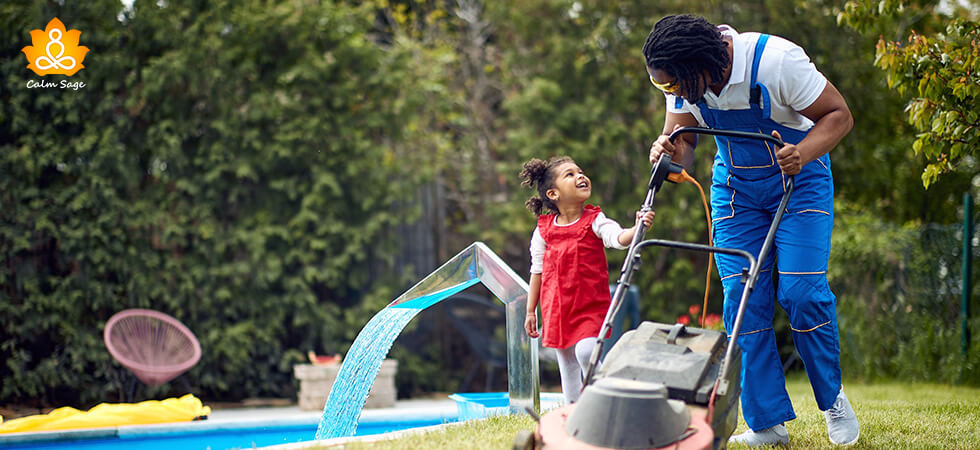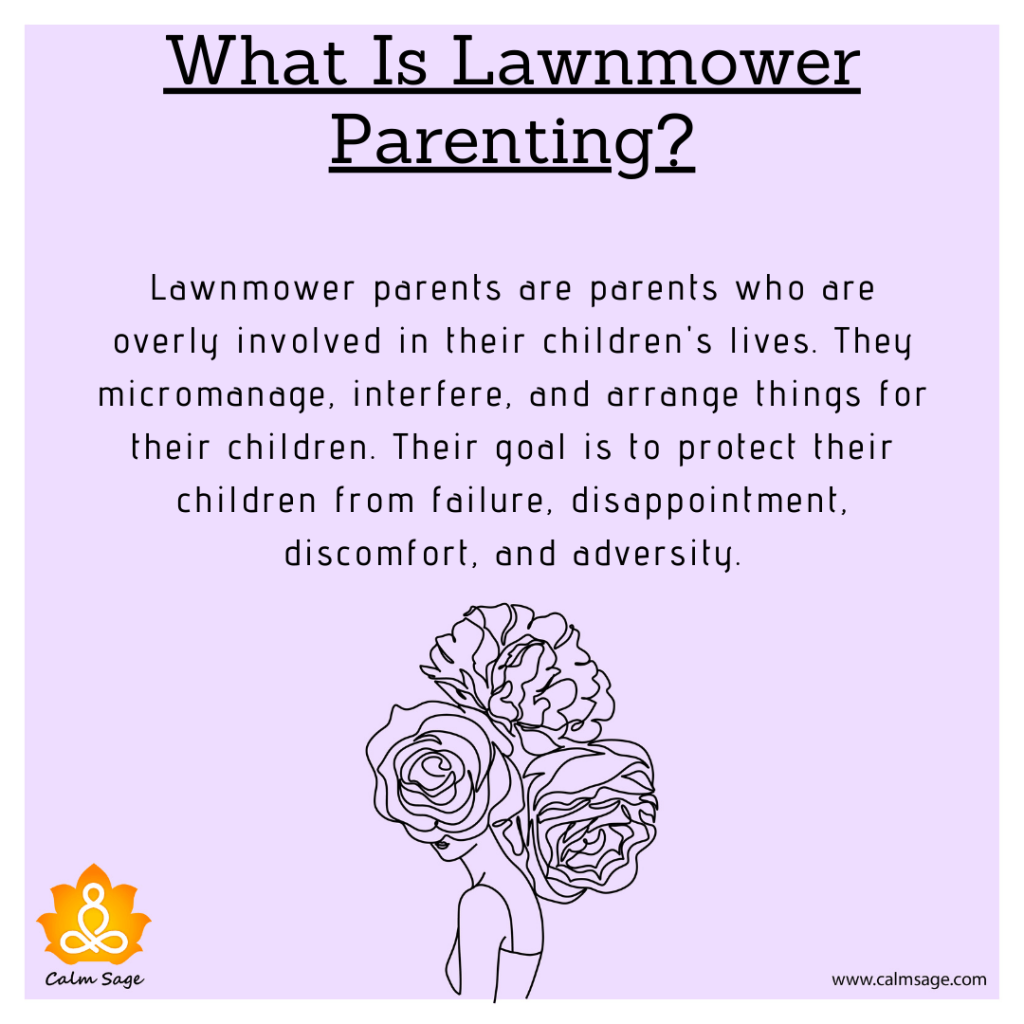Published In
Parenting

Lawnmower Parents: Are You One of Them?
Did you have one friend in school/college whose parents would come to the teacher to tell them not to scold./punish their child? Remember those parents who would complete homework/projects for their children?
Lawnmower parenting is when you mow down challenges and obstacles in your child’s life. Although this parenting style is well-intentioned it can have negative consequences in your child’s life.
Sometimes our emotions as parents flow out of proportion and we fail to make our children stand on their own two feet. We filter their life so much that they don’t learn to face their challenges, difficulties, and problems.
Want to know more about lawnmower parenting? Let’s get started…
Lawnmower Parents Definition


Lawnmower parents are those over-protective parents who intentionally remove all obstacles from their children’s lives. These parents deal with all the hurdles that should be faced by their children.
These parents are so scared of failure hurting their children that they find themselves altering their child’s life. Lawnmower parents fail to understand the difference between supporting their child and being a constant support for their child.
Such parents stop their children from growing and understand how life works. Children need to have a taste of failures, problems, challenges, etc. When that’s missing, life becomes difficult for such children. The intention behind this parenting style is usually well-meaning, as parents want to protect their children’s happiness and success. However, it can have unintended consequences.
Also Read: Parallel Parenting: Creating The Right Plan For Raising Your Children After Divorce!
Signs You Are Indulging In Lawnmower Parenting
It is very easy to spot lawnmower parenting but parents indulging in this type of parenting have no idea how they are spoiling their children’s life. We all want our children to grow up to be strong, and independent, but with lawnmower parenting, it’s almost impossible.
However, you can reverse that if you recognize this destructive parenting style before things go downhill. Here are some common signs of lawnmower parenting that you need to watch out for;
- Finish your children’s unfinished jobs (homework, projects, etc)
- Argue with teachers to protect your children
- Help your child get away from having to deal with difficult situations
- Put the blame for your child’s mistake on others
- Take the front seat in your child’s conflict with teachers, friends, etc.
- Make unreasonable requests for your children
- Meet authorities to help your child get added advantage
- Use contacts to help your child easily reach places they intend to
Are you doing any of these things for your children? If yes, you need to stop doing it. I say so because lawnmower parenting can make your children too dependent on you.
Also Read: Dolphin Parenting Style: Let’s Raise Happy And Positive Kids Together!
How To Stop Being Lawnmower Parents?
If you identify with the above-stated tendencies and wish to adjust your parenting style, here is what you can do;
Mindful reflection: Take some time to reflect on your motivations and fears as a parent. Identifying the reasons behind your lawnmower tendencies can help you understand and address them.
Encourage autonomy: Allow your child age-appropriate opportunities for independence and decision-making. Encouraging them to take responsibility and face challenges will help them develop resilience and problem-solving skills.
Teach coping skills: Help your child learn healthy ways to cope with and navigate difficult situations. Provide guidance, support, and encouragement without taking over or fixing things for them.
Foster a growth mindset: Encourage a growth mindset in your child, emphasizing the importance of effort, learning from mistakes, and embracing challenges as opportunities for growth.
Seek support: If you find it challenging to change your parenting style on your own, consider seeking support from a parenting group, counselor, or therapist. They can provide guidance, tools, and additional perspectives to help you navigate the process.
Also read: What Is Peaceful Parenting? Is It Beneficial?
Remember, no parenting approach is perfect, and making adjustments takes time and effort. Being aware of your parenting style and its impact on your child’s development is an important first step towards creating a healthier and more balanced dynamic.
That’s All Folks!
Thanks for reading.
Take care and stay safe.
